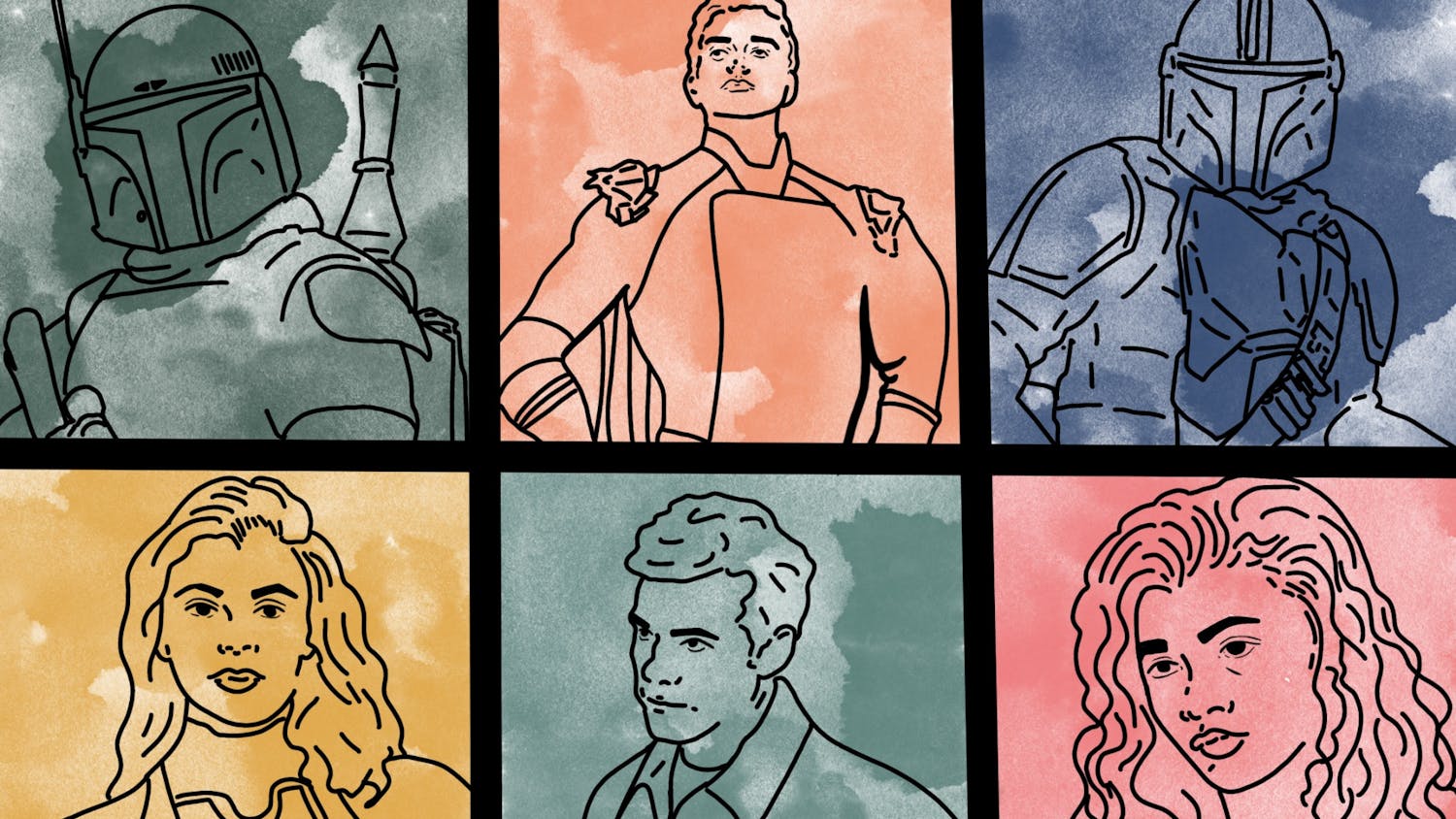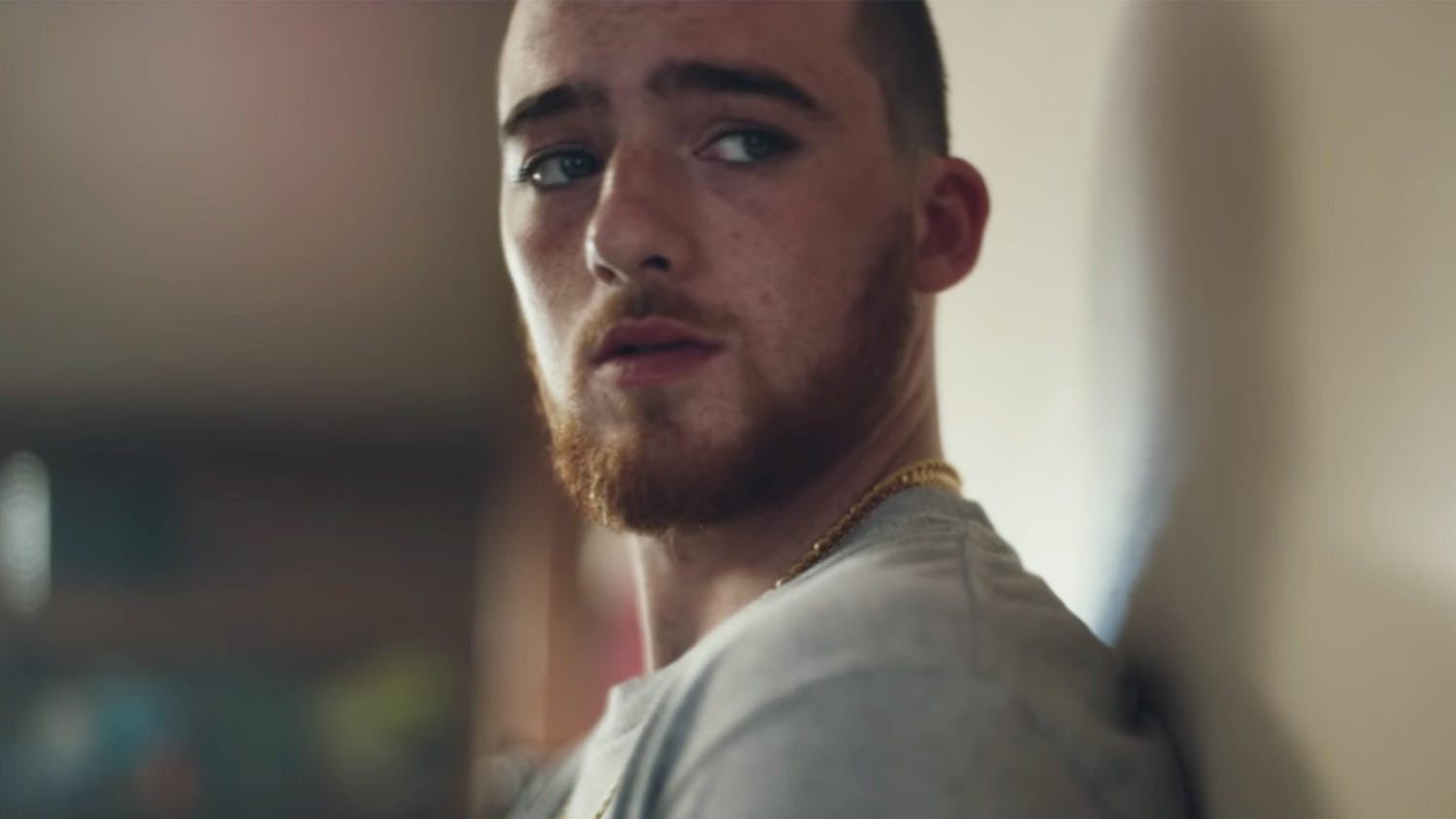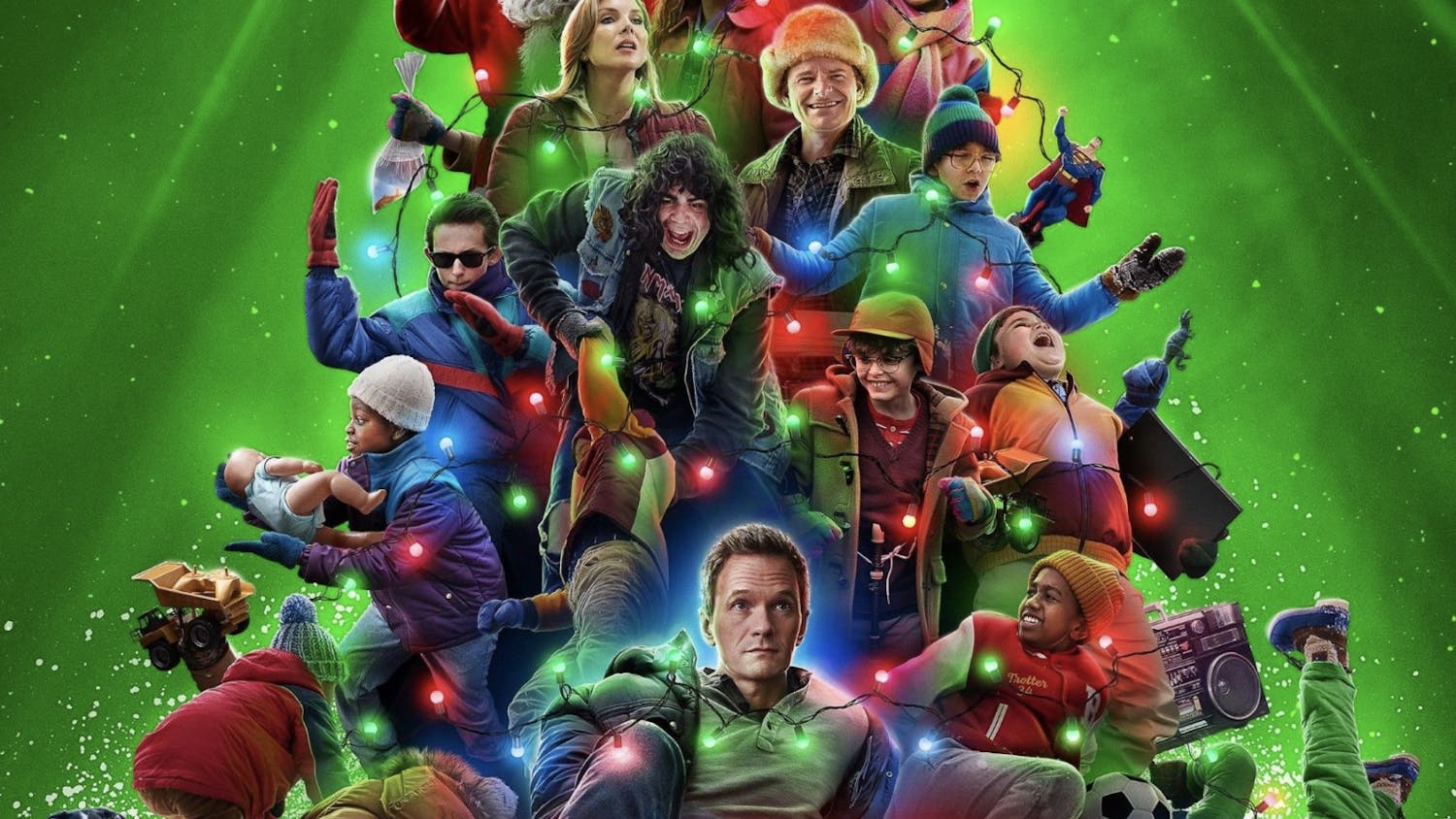Potential. Most film and TV projects start with quite a bit of it because of the source material it could be based on, a great director helming the ship or accomplished writers creating an interesting world. DMZ had all of the above going for it during its eight-year journey from pre-production to release.
Based on a critically-acclaimed DC-Vertigo comic of the same name, this adaptation had some big shoes to fill from the get-go. This was exacerbated by Ava DuVernay, director of Selma and 13th, coming on board as the pilot’s director and executive producer. Ernest Dickerson, a long-tenured director who’s worked on several notable projects, including 1992’s Juice, Do the Right Thing and The Wire, directs the remaining three episodes. The series’ two main writers, Roberto Patino and Carly Wray, previously wrote for Westworld, Sons of Anarchy, Mad Men and the criminally under-watched Mindhunter. Patino also serves as DMZ’s showrunner. The series stars Rosario Dawson and Benjamin Bratt, who are both very talented actors, with guest roles for some usually great character actors, like Hoon Lee and Henry G. Sanders. Despite all of these talented people in front of and behind the camera, DMZ crashes and burns with a plot reminiscent of Swiss cheese, mostly bad or unremarkable performances, terrible pacing and, most shockingly to me, remarkably little to say about its inherently political subject matter.
DMZ follows Alma (Dawson), a woman seeking her long-lost son in the Manhattan DMZ seven years into a second American civil war. Along the way, she must contend with a polarizing election for who will represent the DMZ’s 300,000 occupants. The race is between Parco Delgado (Bratt), an egomaniacal and dangerous cult of personality, and Wilson Lin (Lee), a bureaucratic and seemingly even-headed gang leader with a sociopathic and violent edge. Both candidates have views on what the DMZ should be doing in regards to the war, neither will end well for the people of the DMZ.
Let me start with the positives for DMZ, of which there are shockingly few. The cinematography is the most noticeably strong thing for this limited series, even if it isn’t amazing. It’s just a bit more creative and active than most TV series’ camerawork, especially those in the dystopian vein, like The Walking Dead. While the visual effects aren’t always great, the camerawork does its best to conceal the issues and is often successful. It’s just a solid-looking show with some standout shots that look much better than most of the series’ small-screen competition.
The score, by composer Kris Bowers, of Bridgerton and King Richard fame, is good but not great. It’s good enough to make the series’ many non-effective attempts at emotional moments at least somewhat successful. It’s really good at being emotionally manipulative, but also rather unintrusive, not being especially noticeable or remarkable to the ear. I couldn’t tell you a single track or theme that sticks out during the series’ four-hour run.
The last thing the series has going for it is the strong performances by Bratt and Lee. Bratt is just fantastic, giving his all to be the main villain of this series. He sells almost every scene he’s in, regardless of the nonsensical context the show places around them. I wish he was the protagonist, but instead, the series opts for a below-average at-best and distracting terrible at-worst Rosario Dawson for its lead. Bratt is often over the top, but it works for what the series is going for, a miracle considering everything else I’ll get into shortly.
Lee is just as good as Bratt but is much more reserved. Both their characters are predictable archetypes. Lee’s Wilson is a reserved man of action, preferring to do most of his work behind closed doors, letting fear gestate through rumors and mystique. Bratt’s Parco Delgado is a boisterous and confident gang leader who operates almost exclusively through violent means and displays. Both characters are inherently flawed and hypocritical in their respective ideologies, especially Parco, which inevitably leads to varying levels of conflict.
Now on to what doesn’t work: everything else.
The rest of this review will contain full spoilers for DMZ. I cannot discuss how little sense this show’s plot and eventual finale make unless I give specifics. If you want to watch this series and therefore don’t want any spoilers, just know that I think your time would be better spent watching almost anything else on HBO Max.
The plot of DMZ just doesn’t work if you think about it at all, which is a serious issue compounded by the series giving you plenty of downtime, where nothing is really happening or progressing, to process the plot points presented.
Now, I’m going to present the biggest plot holes I spotted through my boredom and frustration. Alma, Dawson’s underwhelming lead, decides to enter the DMZ in the hopes of finding her son seven years after losing him. Why did she wait seven years despite having easy access to the DMZ during that entire time? The series never answers that question, or at least it doesn’t in a way that makes enough logical sense to mention. She just waited because it would allow there to be extremely obvious plot twists later, I guess.
When we meet her son initially, he appears to be quite young, probably 15 or 16. His name is Christian and played in a couple of scenes by Bryan Gael Guzman. Seven years pass, we meet her son again going by the name Skel (Freddy Miyares), the badass wasteland hitman of the DMZ working under his father, Parco Delgado. The twist is supposed to be that Alma’s son has been twisted and morphed into a sociopathic murderer by his father; the real twist is that he’s aged to be in his late-20s and now has a completely different facial structure. So, it’s only a twist because the casting was purposely made to be misleading.
The actual reveal of the DMZ’s massively feared killer being her son isn’t surprising because he’s the only character introduced that could somewhat logically be her son, either by age (kinda) or race. So, Skel would either be her son, or her son would be a corpse somewhere in the DMZ, and the series just isn’t going to go that route because it would end after one episode or somehow end up being more drawn out than it already is.
Moving into the second episode, Alma somehow gains political power in the DMZ after residing there for about two days. Speaking up at a debate between Parco and Wilson, all the gangs of the DMZ listen to her and then agree with her for some reason, even before she provides them with fresh water as a bribe. All the people in attendance have already sworn allegiances to either Parco or Wilson, so them listening to her makes no sense. It makes even less sense when she’s introduced as an outsider. Realistically, she’d be booed off her stage and ignored. It’d be like if a random guy came up on stage at a Presidential debate and stated that he was also running; no one would care, he’d be ignored by the public and tackled by the Secret Service. I usually wouldn’t bring up realism in a dystopian series, but it’s actively attempting to be realistic in almost every regard otherwise.
During all of this, Skel has fallen in love with Wilson’s adopted niece, Tenny (Sydney Park). They both plan on leaving the DMZ together to start a new life and a family; they’ve known each other and been together for a few days. I guess love forms fast in a wasteland. Anyways, through a convoluted series of events, Skel ends up killing Wilson, in front of his mother, his father and Tenny. Tenny seems disgusted with him but ends up leaving with him to start a life together at the end of the series, anyway. Yes, it was established that she didn’t like being held in Wilson’s stronghold and away from others, but she still cared for him. So, throwing years of her life away to be with a man she’s known for a few days and who murdered the closest thing she had to a father figure makes absolutely zero sense.
When Wilson is killed at the end of episode three, Alma takes his place in the election, one that Parco has essentially already won because he controls every single DMZ gang’s votes, except Wilson’s. Despite this, Alma gives a speech to the people of the DMZ over the radio, asking for their vote and exposing Parco’s plans. Somehow, she gains 50,000 more votes than Parco, beating him, even though she just took Wilson’s place on election day. Again, realistically, no one would vote for her. She’s an outsider who’s been in the DMZ for less than a week and has no credibility outside of a refreshing bribe.
The series ends with Parco being detained by the U.S. government (don’t ask me why, I honestly zoned out at this point due to frustration), and Alma becoming, for all intents and purposes, the President of the DMZ, as someone who’s lived there for less than a week.
There are many more holes than this, mostly much smaller, but still affecting the plot significantly, I just don’t want to waste any more time going over them. The last thing I want to do is waste the reader’s time, which is the exact antithesis of what this series ended up doing. So yes, I could write paragraph after paragraph about how characters traverse miles in Manhattan within seconds without cars or vehicles and how Alma somehow has a history with everyone of significance in the DMZ, but I won’t go any further in that regard.
Despite taking almost every shortcut possible, pacing is another massive issue DMZ has. Major climatic events are either stacked on top of each other or put in odd places, leaving massive amounts of downtime before something meaningful happens again. For example, Alma reunites with her son about 20 minutes into the second episode, a very big and climactic moment, something usually reserved to end an episode or start one. Instead, it’s in this weird middle ground between the two, leaving around 30 minutes of time between Alma and her son’s reunion and the episode’s ending debate between Parco and Wilson. The series fills that time with nothing interesting or entertaining, unless the forced relationship between Skel and Tenny is worth that much to you.
Another example would be the pilot’s abundance of endings. You think it’s going to end when Alma’s doctor friend, Rose (Mamie Gummer) is killed, but no. You think it’s going to end with Alma essentially adopting a young boy following Rose’s killing, but no. You think it’s going to end with Alma going back to her job outside the DMZ like what was planned, but no. It finally ends with her learning that Skel is her long-lost son and then returning back to the DMZ after running away from soldiers. It’s what I would describe as a The Lord of the Rings: The Return of the King problem, as it notoriously had several endings.
The main problem related to pacing is just the sheer amount of downtime and filler in this four-hour limited series. If your series is limited, use the time you have, don’t waste it and your audience’s time on things that don’t matter or don’t add to what your series is doing. DMZ just has too much to do in a short period of time, so it resolves to do nothing, instead.
Above everything, I think the most damning thing I can say about DMZ is that it’s silent on social issues that it should be commenting on. The series follows a group of people abandoned by their government in a warzone, most of them being minorities, there’s a lot you could do with that given what’s going on in the U.S. and around the world right now. Releasing this show in the midst of the Russia-Ukraine conflict seems like no coincidence, but it doesn’t matter if the show does nothing with the material it’s given. The series doesn’t even take a stance on whether it’s okay that the government abandoned people in the DMZ.
I don’t know how this could happen; DuVernay is an incredibly politically outspoken filmmaker and activist for equality. Dawson is also extremely active as a political activist. Even Bratt has been outspoken on his politics in recent years, so how could this series be so mum on any possible political commentary?
The only thing I can think of, outside of general laziness, is that HBO and Warner Bros. stepped in and made sure the series wouldn’t be politically divisive, especially as it was filmed following President Biden’s election and in the middle of a highly politicized pandemic. They most likely wanted the series to have as much broad mainstream appeal as possible, avoiding politics despite it taking place during a civil war in America. The series never even states why the civil war is occurring or what the viewpoints are for each respective side. It’s odd and just another massive waste for this series’ underlying potential.
Long story short, don’t waste your time with DMZ. It’s just good enough and has enough promise to trick you into wasting your time with it, but don’t fall into its trap. You’d be better served spending your precious time watching pretty much any other show streaming on HBO Max. It’s a series that’s better left forgotten, like the people of the DMZ the series woefully underrepresents.






